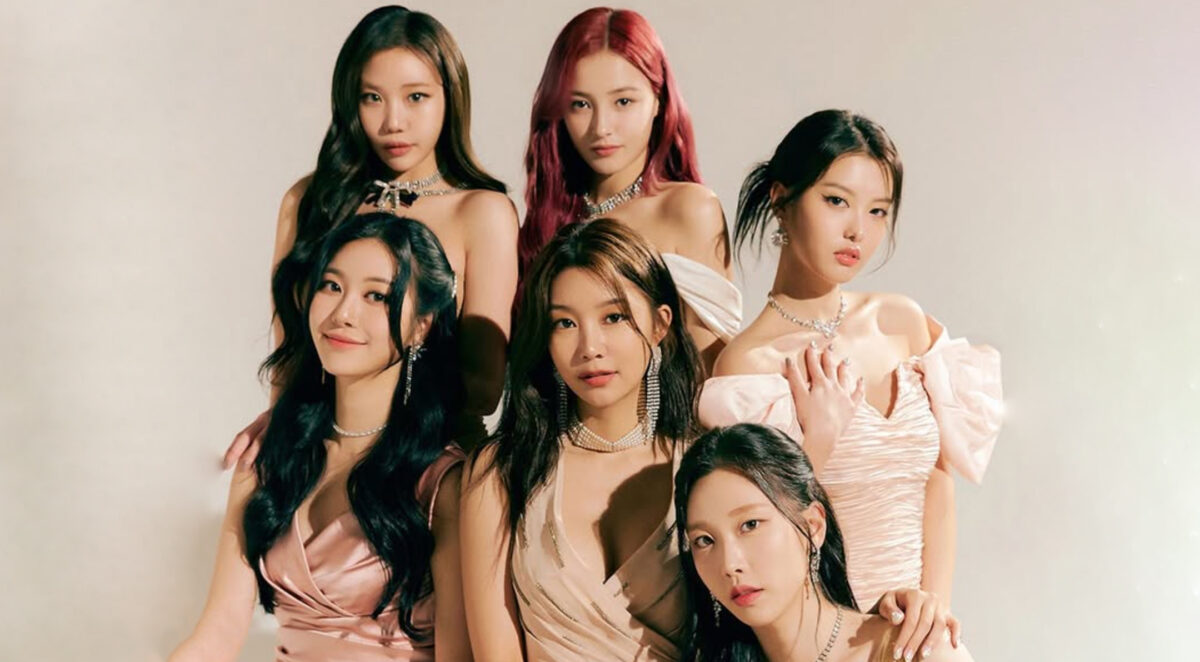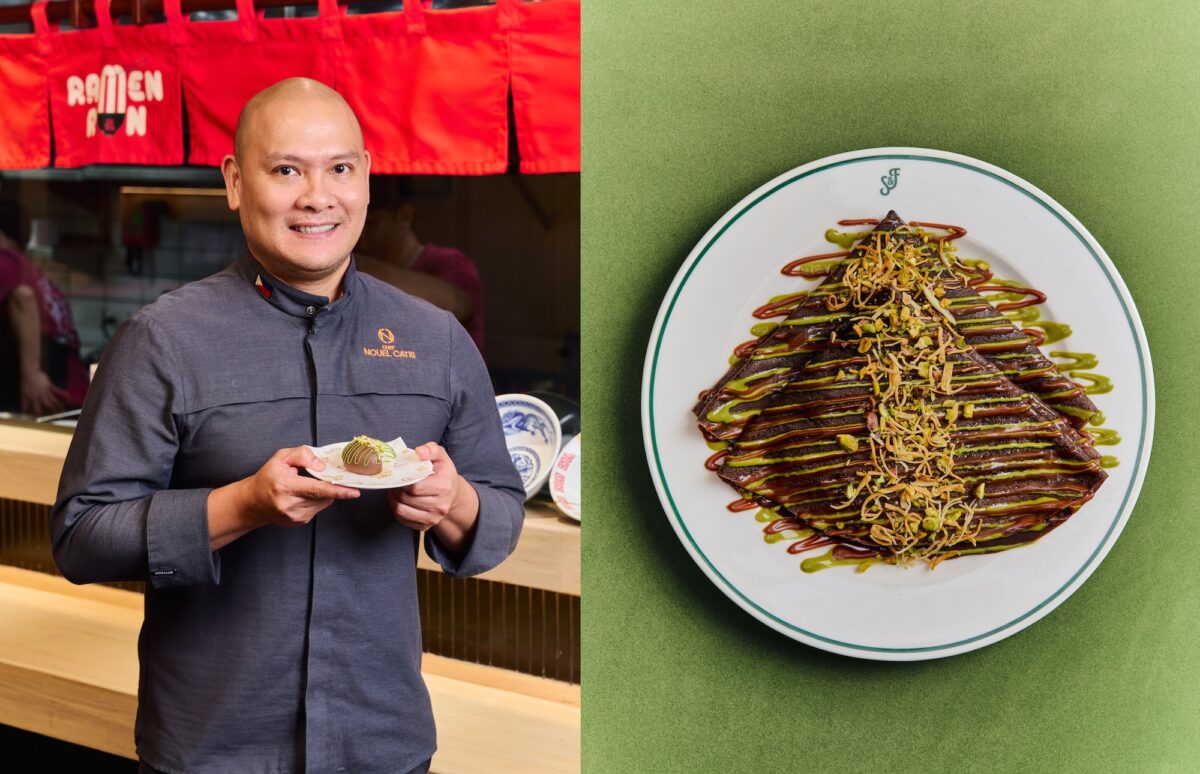At 22 years old, Hongjoin is living out his dream of becoming a musician. But away from home and constantly plagued by worries of a music career not working out, the Singaporean singer is finding out that being an artist isn’t as easy as it seems
At 22 years old, Hongjoin is living out his dream of becoming a musician. But away from home and constantly plagued by worries of a music career not working out, the Singaporean singer is finding out that being an artist isn’t as easy as it seems.
His latest album, “Komorebi” (木漏れ日 ), comes from the Japanese word to describe sunlight filtered through the leaves of the trees. Though it does not have a direct English translation, Hongjoin took it upon himself to express its meaning through music: hope that seeps through the dark.
“Komorebi” is a nine-track album that utilizes dreamy and psychedelic instruments and synthesizers to visualize the imagery of a sun-lit forest. He takes after musical influences such as Zack Tabudlo and Mac Ayres and uses their model to create songs inspired by his multicultural roots.
READ: All the artists we’re looking forward to at Fête de la Musique 2024
Here, we caught up with Hongjoin to talk about his new album, the meaning of komorebi, and his long-standing relationship with Filipinos.

Tell us a little about your new album “Komorebi.”
I’ve been making music for a long time now and I mainly produce on my own, but this is the biggest project I’ve ever done. It’s an album about love and long-distance relationships. If you’re a hopeless romantic and a little delusional like me, you should totally check out my music.
What’s the story behind the album?
The album’s name, komorebi, is a Japanese word that means “sunlight filtering through leaves.” It does not have a direct English translation. I took it upon myself to describe its meaning through music.
I’m also part Japanese so it was my attempt at reconnecting with my Japanese roots as a Singaporean. And because I’m an Asian living in the States, I tried my best to draw inspiration from both sides of the world. It was like shaking hands with the different cultures I’m immersed in.

What does komorebi mean to you?
To me that signifies hope. No matter how dense the forest gets, there’ll always be light that peeks through. And it also feels like love seeping through the leaves. This whole album is about love. I hope people listening to it feel inspired to love again, especially if they’re down.
I also used to write a lot of sad music, but this album is very different because it’s all about love, trusting the process, and taking a leap of faith. I’m 22 years old but that was just me trying to communicate my feelings growing up and my experiences with love, and I hope people can relate to that.
You’ve mentioned how the sounds you used in the album are inspired by some of your favorite artists. Can you name a few?
Zack Tabudlo is a big inspiration. I listened to a lot of “Binibini,” which is one of my favorite songs by him. Also a lot of Korean and Japanese music—Wave to Earth, Lamp, and Sunset Rollercoaster, typical staples in Asian music.
From the Western world, my favorite band Valley and Mac Ayres for some good ol’ R&B. These are the ones I listened to a lot and I noticed that they’re very deliberate in the way they write and produce. These artists, especially OPM—have sad lyrics but with happy production. And it just makes you so confused because, am I supposed to cry or am I supposed to dance? It’s things like these that inspire me and I tried to emulate that in my music.
READ: Listening Party: Jason Dhakal, DENȲ, and Zack Tabudlo Stand Out as OPM’s Best and Latest

Going back to the album, is there a song you would say encapsulated the entire project?
The most obvious answer would be “Komorebi,” which is the title track. Though, if I were to recommend a song, it would be “My Dream.” It’s doing quite well in the Philippines. I think that’s a good start if you haven’t listened to the album yet.
“My Dream” is about giving up your dreams for a relationship—or more specifically, giving up things that you love to give more time to the things that matter. And for me, because I left home, I’m constantly feeling the pressure of “when am I going to make it” or “what if music doesn’t work out.”
I think a lot of people can relate to that, especially those who left home for work or for school. It’s also one of my favorites on the album.

Speaking of “My Dream,” it felt very dreamy and psychedelic. Is that something you were specifically going for?
I produce my own music. A big element of what I want to do is to create a soundscape. By that, whenever you’re listening to my music, it feels like you’re in a different world. With “My Dream,” there’s a lot of ear candy, things tickling your brain. I like that because it makes you feel immersed in the music.
How did you start out as a producer?
Maybe three or four years ago, I was in the Singaporean military and every single time I wasn’t in camp, I was learning how to produce from YouTube. And I started my music thing off the platform for fun, but somehow, there were people who listened to me that thought I was pretty interesting.
I eventually put out a song—I had no idea what I was doing, but a lot of people that I didn’t even know, started listening to my music and commenting on it. When I first started, a lot of my early supporters—the OGs—were from the Philippines.
There are artists who choose between singing or producing, while there are some who do both. When did you realize you wanted to pursue both?
I started producing music because no one else was going to do it for me. I didn’t have friends who knew how to produce. I also didn’t go to music school or anything. It was just me and YouTube.
There’s truly something special about producing your own music. It’s the way I envision the music and I can just translate that into the actual song. So what you’re hearing in the final product is what I thought the song would be in the first place.
I also get to add a lot of samples from my everyday life. It could be voice memos or little videos that I chopped up, and these little things really make the song feel like mine.
Though you just released an album, what can we expect from you soon?
For now, I’m busy promoting the album. I’m playing live and I’ll also hopefully go on tour in the States. But I’m always going to make new music. I definitely want to collaborate with a lot of artists, so if you know any Filipino artists that want to partner up, I’m always down.
Do you have anything to say to your Filipino fans?
Mahal kita! Filipino fans are so awesome. They love sad and heartbreak songs but they also know how to have fun. Once, I was done with my headline show and there was someone who came up to me and said they came all the way from the Philippines to watch me. I promised them that I was going to one day play there so I hope I get to meet more Filipino fans. I hope you guys will be patient. It will happen very soon.









































